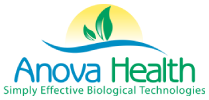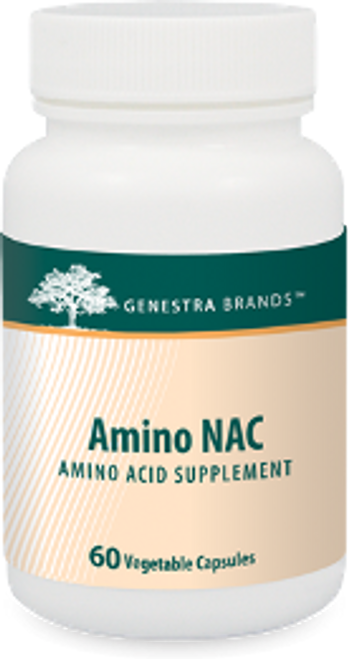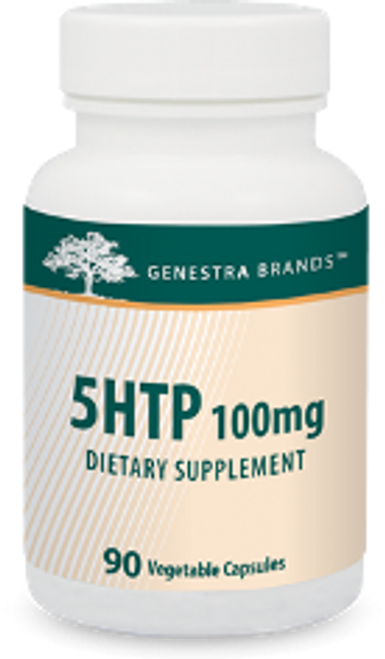Product Overview
Genestra Amino L-Glutamine (500 mg)- 90 capsules
• L-Glutamine in capsules • Non-essential amino acid • Ideal for vegans • Convenient capsule format increases patient compliance
Amino L-Glutamine provides an appropriate amount of this non-essential amino acid. The capsules are 100% pure vegetable-sourced.
Additional product info: Glutamine is an important fuel for rapidly dividing cells such as enterocytes and lymphocytes. Exogenous glutamine supplementation in catabolic states preserves intestinal mucosal structure and function, decreases bacterial translocation, and supports normal immunologic responses (1) . L-Glutamine at 5-9 grams daily support digestive system health after periods of physical stress, support immune system health after periods of physical stress, help to assist in muscle repair after exercise and help restore plasma glutamine levels depleted after periods of physical stress (2) .
Glutamine is an important energy source in intestinal mucosa, the small intestine is the major organ of glutamine uptake and metabolism and plays an important role in the maintenance of whole body glutamine homeostasis. The purpose of a clinical study was to observe the protection effects of enteral supplement with glutamine granules on intestinal mucosal barrier function in severe burned patients. Forty-eight severe burn patients were randomly divided into two groups: burn control group (B group, 23 patients) and glutamine treated group (Gln group, 25 patients). Glutamine granules 0.5 g/kg were supplied orally for 14 days in Gln group, and the same dosage of placebo were given for 14 days in B group. The results of the study indicated that glutamine granules taken orally could abate the degree of intestine injury, lessen intestinal mucosal permeability, ameliorate wound healing (3) .
Athletes undergoing intense, prolonged training or participating in endurance races suffer an increased risk of infection due to apparent immunosuppression. Glutamine is an important fuel for some cells of the immune system and may have specific immunostimulatory effects. The plasma glutamine concentration is lower after prolonged, exhaustive exercise: this may contribute to impairment of the immune system at a time when the athlete may be exposed to opportunistic infections. The effects of feeding was investigated both at rest in sedentary controls (glutamine solution (0.1 g/kg body wt) dissolved in 250 mL of distilled water) and after exhaustive exercise in middle-distance, marathon and ultra-marathon runners, and elite rowers, in training and competition glutamine (5 g L-glutamine in 330 mL mineral water). The provision of oral glutamine after exercise appeared to have a beneficial effect on the level of subsequent infections. In addition, the ratio of T-helper/T-suppressor cells appeared to be increased in samples from those who received glutamine, compared with placebo (4) . Exercise also stimulates the production and release of interleukin-6 (IL-6) from skeletal muscle. Glutamine is also synthesized in skeletal muscle and is involved in protein synthesis within this tissue. A study hypothesized that glutamine supplementation would attenuate the exercise-induced decrease in plasma glutamine concentration and, thus, further enhance levels of plasma IL-6. Eight healthy men participated in a randomized, double-blind, crossover study in which they performed 2 h of cycle ergometry at 75% of peak O2 uptake. They received glutamine (3.5 g glutamine in 500 ml water), glutamine-rich protein (3.7 g protein from sodium caseinate, containing 1.23 g protein- bound glutamine in 375 ml water), or placebo supplementation at intervals during and 2 h after exercise. Exercise induced an 11-fold increase in plasma IL-6, which was further enhanced by glutamine (18-fold) and glutamine-rich protein (14-fold) supplementation, administered at doses that attenuated the exercise-induced decrease in plasma glutamine concentration (5) .
Other ingredients: Hypromellose, microcrystalline cellulose, magnesium stearate








